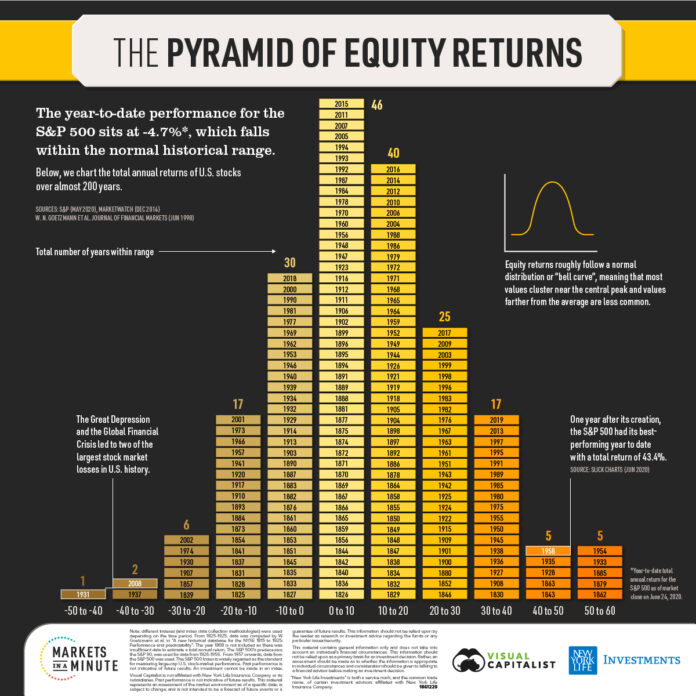The U.S. economy is facing heightened uncertainty as market turbulence intensifies. A massive selloff in equities has reignited fears of a potential recession, with major indices posting significant losses.
The Nasdaq plunged by 3%, the S&P 500 declined by 2%, and the Dow Jones Industrial Average fell by 1%. Adding to the distress, the 10-year Treasury yield also tumbled, signaling a flight to safer assets as investors brace for an economic slowdown. The downturn reflects growing concerns over inflation, monetary policy, and declining consumer confidence, putting immense pressure on financial markets.
Market Jitters and Economic Uncertainty
The recent selloff indicates more profound anxiety over the U.S. economy’s trajectory. The Federal Reserve’s aggressive stance on interest rates, aimed at curbing inflation, has contributed to declining corporate earnings and slowing consumer spending. While inflation has shown signs of cooling, it remains a persistent challenge. Higher borrowing costs make it harder for businesses to expand and consumers to sustain previous spending levels. The combination of rising interest rates, a tight labor market, and declining profit margins pushes investors toward a more cautious outlook.
A particularly concerning signal is the decline in bond yields, especially on the 10-year Treasury note. When investors rush to buy bonds, driving yields lower typically indicates expectations of economic slowdown or recession. Historically, an inverted yield curve—where short-term bond yields exceed long-term ones—has been a reliable predictor of recessions. With the bond market showing increasing distress, fears of a downturn are not unfounded.
Technology Stocks Under Pressure
One of the biggest areas of concern in the selloff is the significant drop in technology stocks. The Nasdaq’s 3% fall highlights the impact of rising interest rates on high-growth companies. Tech stocks, which thrived in an era of low interest rates, struggle as capital becomes more expensive. Many of these companies are experiencing slowing revenue growth, declining valuations, and even layoffs as they adjust to a new economic reality.
Adding to the pressure, Tesla is at the center of a controversy. CEO Elon Musk’s involvement in federal spending cuts has sparked protests and even violent demonstrations at Tesla facilities. As a result, Tesla’s stock has taken a significant hit, reflecting broader concerns over political risks associated with major corporations. The company, which has long been a favorite among investors, faces reputational challenges that could impact its long-term valuation.
Is Recession Inevitable?
While the current market conditions suggest a potential downturn, a full-blown recession is not guaranteed. The strength of consumer spending will be critical in determining the economy’s fate. Since consumer spending drives nearly 70% of the U.S. economy, any sharp decline in purchasing power would be a strong recessionary signal. If inflation erodes disposable income, households may reduce spending, leading to slower economic growth. However, the economy could maintain stability if wage growth remains steady and unemployment stays low.
The Federal Reserve’s policy decisions will also play a crucial role. If the Fed continues to raise interest rates aggressively, it could push the economy into a recession. However, if the central bank signals a slowdown in rate hikes or considers a pause, investor confidence could return, stabilizing the markets. The timing and scale of monetary policy adjustments will be pivotal in shaping the economic outlook in the coming months.
The Role of Corporate Earnings and Business Sentiment
Corporate earnings reports will provide further insights into the economy’s direction. Companies across various sectors face increasing pressure from high costs and reduced demand. Market volatility could intensify if earnings disappoint or companies begin issuing warnings about future profitability. Furthermore, a weakening labor market could be an early sign of trouble. If businesses start laying off workers in large numbers, it would indicate declining confidence in economic growth, further fueling recession fears.
The technology sector, in particular, remains a bellwether for investor sentiment. Companies like Apple, Amazon, and Google are struggling with slower revenue growth, so their earnings reports will be closely watched. A continued slump in tech stocks could drag down the broader market and accelerate concerns about an impending recession.
Navigating Market Volatility
For investors, the current downturn is a test of patience and strategy. While market corrections can be unsettling, they also present opportunities. Diversification remains one of the most effective ways to mitigate risk. Investors are shifting towards defensive sectors such as consumer staples, healthcare, and utilities, which perform well in uncertain times. Bonds and other safe-haven assets, including gold, also see increased demand as investors look for stability.
One key lesson from previous downturns is the importance of avoiding panic-driven decisions. While short-term losses can be painful, markets tend to recover over time. Long-term investors should focus on the fundamentals rather than reacting to day-to-day volatility. However, given the unpredictability of the current economic climate, staying informed and adjusting investment strategies accordingly will be essential.
Recession or Temporary Market Turmoil?
The U.S. economy is at a crossroads. While market volatility and economic indicators suggest a slowdown is possible, a recession is not inevitable. Much will depend on how the Federal Reserve manages monetary policy, how consumers respond to inflationary pressures, and how businesses adapt to changing financial conditions.
The economy could weather this storm if economic fundamentals remain strong and consumer confidence rises. However, if inflation remains persistent, corporate earnings continue to decline, and layoffs increase, a recession could become a reality. The coming months will be critical in determining whether the U.S. economy is heading toward a downturn or simply experiencing short-term market corrections. Investors and policymakers alike must navigate these challenges cautiously and adaptably.

